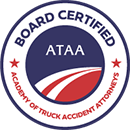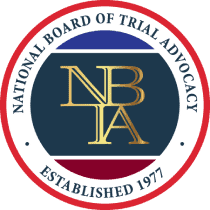Do Truck Drivers Have Continuing Education and Training?
When you become a commercial truck driver, you are taking all the skills you learned for your fundamental driver’s license and enhancing them to follow the standards of a commercial driver’s license (CDL). A commercial driver’s license is available in three class levels, with each level being a different size and type of vehicle.
Before you apply for a CDL in Washington, you must go through 80 to 160 hours of training (depending on which class of license you’re applying for). Once you get a CDL, do truck drivers have continuing education and training? They do, and they should.
The Value of Continuing Education for Truckers
If you are a parent helping their teen study the state’s official driver’s guide, you might find it interesting about all the rules of the road that you’ve forgotten. Every driver would benefit from a “refresher course.” Those types of courses are essential for truck drivers who need to be in compliance with changes in federal and state regulations.
The trucking industry is also constantly evolving and upgrading with new safety technologies. Staying informed about these changes will help truck drivers stay safe on their trips.
CDL Education Opportunities
Truck drivers need to take a proactive approach to their continuing education. There are opportunities to enroll in online courses, workshops, and certification programs that won’t be a huge distraction from their jobs. In other words, they won’t have to stay off the road for long in order to take advantage of some of the following education opportunities:
CDL Refresher Course
The only way for a driver to be hired by a trucking company is with a CDL in good standing.
Typically, a truck driver will take their initial course for one of the specific classes of license. After that, they will be able to take the additional courses to obtain the other class of license. That will open up more career opportunities and reinforce even more safety standards.
A refresher course helps truck drivers improve their skills and will include hands-on training in the following maneuvers and techniques:
- In-cab air braking
- Proper shifting and movement in traffic
- Backward movement and control, with a focus on highway vs. city driving
Truckers will also get updates on required commercial vehicle inspection and maintenance tasks. These inspections can go a long way to prevent a truck accident from mechanical failure.
Defensive Driving
Defensive driving is an approach everyone should take to avoid getting into accidents. Truck drivers behind the wheel of an 80,000-pound rig have to be even more alert. Here are some of the areas that a defensive driving course can include:
- Choosing the right truck driving speed based on traffic conditions
- Staying alert to respond to any mistakes other drivers make quickly
- Skid control
- Emergency maneuvers
- Fatigue management
- Winter, night, and bad weather driving
Hazmat Training
The Department of Transportation (DOT) requires truck drivers to obtain additional certifications to transport hazardous materials. Hazmat training provides truck drivers with the skills they need to transport a wide range of hazardous materials safely. These training programs can include the following:
- General awareness or familiarization training
- Hazmat transportation safety training
- Function-specific training
- Security awareness training
- In-depth security training
Before a truck driver can be certified for this type of job, they need to pass the Pipeline and Hazardous Materials Safety Administration (PHMSA) test.
Load Securement
No matter what the truck driver is hauling, their cargo needs to be properly secured. The Federal Motor Carrier Safety Administration (FMCSA) has very specific regulations about how to secure cargo. Many truck drivers don’t actually load their trucks. That job is left to the loading company.
However, understanding those regulations and standards would greatly benefit a truck driver.
If the cargo shifts during transport, it will become the truck driver’s responsibility to make sure it is properly secured.
Staying Engaged and Informed
Truck drivers have access to many trade organizations and publications that can keep them informed about industry changes. Organizations such as the Owner-Operator Independent Drivers Association (OOIDA) and the American Trucking Associations (ATA) can provide information about training and recertification programs.
It is also essential for the average driver who doesn’t have CDL to stay informed about the trucking industry. There could come a time when you might be involved in an accident with a truck.
If that happens, the Trucking Injury Law Group will be standing by to provide guidance and support about the best way to seek a remedy for your losses. We know who to hold responsible for these types of accidents and work hard to seek a fair and fast resolution.






